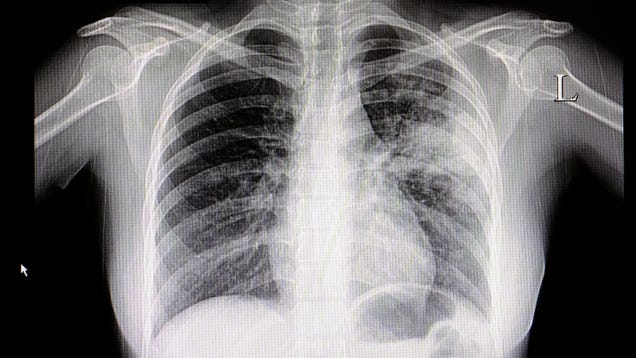
Last week, Beverly Reed, a fertility doctor in Texas, started making a series of difficult phone calls. The American Society for Reproductive Medicine (ASRM) had just released guidelines advising the suspension of “new, non-urgent fertility treatments” in an attempt to limit both the transmission of covid-19 and the use of medical supplies that are newly in demand. “Urgent” cases include patients facing imminent cancer treatments, but not those with fertility issues relating to age or diminished ovarian reserve. “Our patients were so heartbroken that they lost their chance for now,” Reed said. After canceling upcoming appointments and witnessing the emotional fallout among patients, Reed returned home that night and turned on the news. There, frolicking across her television screen, were Spring Breakers crowding beaches in Florida. “How can my patients not even have a single test done and this is being allowed to happen? It’s just not fair,” she said. “I couldn’t sleep that night.”
Soon, Reed launched a petition, titled “Fight for women’s rights to fertility treatment and evaluation,” which takes issue with the ASRM guidelines for broadly recommending the shuttering of services, as opposed to accounting for regional differences in covid-19 spread, or considering whether or not individual clinics are using in-demand medical supplies. More generally, the petition argues that the decision is discriminatory, sexist, and regards procedures such as in vitro fertilization as elective. Fertility treatment, argues the petition, is time-sensitive and urgent. “For a woman in her 40s trying to have a family, every single month counts,” the petition reads. It has now garnered nearly 12,000 signatures.
Of course, the ASRM decision follows recommendations from the Centers for Disease Control and Prevention, among others, that hospitals and dentists postpone elective procedures. But the backlash to the guidelines has to be understood in the context of long-standing pain and outrage around the treatment of reproductive healthcare, and fertility medicine in particular, as elective. Many insurance companies refuse to cover fertility treatments on those grounds, although well over a dozen states now require some degree of coverage, resulting in exorbitant out-of-pocket fees. Same-sex couples and single women, in particular, are often required to jump through hoops to prove the necessity of treatment. Now, a global pandemic is predicted to overload our medical system and kill many people in the United States, which has put that pre-existing debate in the most extreme of contexts.
As Americans socially isolate or shelter in place, greater emphasis is being put on both household and family. The nuclear dynamic is cast (questionably) as a sanctuary, and jokes about a covid-19 baby boom abound. Meanwhile, those struggling with infertility are only further separated from the hope of growing a family. Nikiya, a 33-year-old single patient of Reed’s, got pregnant through intrauterine insemination in February but miscarried. “It was unexpected and hard,” she said. “We agreed to skip March to let my hormones reset and try again in April.” Now, it’s unclear when she will be able to try again.
“These guidelines effectively prevent most single women, same-sex couples, and couples dealing with infertility from conceiving,” said Nikiya. “Right now, it seems that the only people allowed to reproduce are heterosexual couples with no fertility issues. We are being singled out.” It’s worth noting that many people without fertility concerns are currently having to reconsider previous wishes to get pregnant, due to the uncertainty of what the next year will bring for public health, the healthcare system, and the economy. In those cases, there is a lack of prohibitory medical guidance; and, it could be argued, a degree of choice, although for many that choice is constrained to the point of meaninglessness. The petition puts the argument like so: “[N]o guidelines or organizations have asked fertile patients to avoid pregnancy or use contraception. Our infertility patients are now asking us: ‘Why are WE the only ones being asked to make a sacrifice to avoid pregnancy?’”
The answer, from the standpoint of ASRM, is that fertility treatments require medical assistance. “The recommendations are not discriminatory but rather reflective of our social responsibility to society as a whole,” said Jennifer Kawwass, medical director at Emory Reproductive Center, and a member of the panel. “Currently, only medical treatment that is life-or-death is in compliance with public health measures.” Kawwass notes that “the term ‘elective’ was purposely left out of the ASRM guidance as infertility treatment is not elective.” She added, however, that “it is not, in most cases, urgent as currently defined in the setting of a global pandemic.” Amid this public health crisis, personal definitions of “urgent” tend to shift depending on where one stands.
Reed, who says she has gotten intense criticism from colleagues in medicine, says the petition has nevertheless resonated strongly with patients. She points to the comments on the petition, many of which tell personal stories of loss and uncertainty. “After trying for three years my first IVF failed and now I’d like to have another one and I cannot until this is over and my time is ticking away,” writes one woman. Another says, “I am in a same-sex couple and we have no other option to get pregnant.” Reed emphasizes that she takes the covid-19 risk seriously, but argues that the guidelines could have suggested staggering clinic shutdowns based on the geographic spread of the virus while allowing for visits that minimize the use of in-demand resources and take reasonable measures to prevent transmission. The Society for Assisted Reproductive Technology (SART), however, has said the latter is not possible.
The ASRM guidelines specifically advise against starting new procedures, including ovulation induction, intrauterine inseminations, and in vitro fertilization, and urge clinics to “strongly consider cancellation of all embryo transfers whether fresh or frozen.” Exceptions are made for urgent, time-sensitive fertility treatments: Kawwass gave the example of fertility preservation for patients with cancer. “These cycles are still proceeding,” she said of such exceptions. “It is possible that the definition of time-sensitive may evolve depending on how long the pandemic continues.”
In step with ASRM, SART notes on its website, “No one providing your care believes that any fertility treatment is elective.” However, it continues, “There is a distinction between a treatment that cannot be postponed even for a few days (such as surgery for a ruptured appendix), and treatment that is time-sensitive and extremely important (such as IVF) but not a medical emergency.” For patients, the distinction between “extremely important” and “medical emergency” can be a difficult one. Amy Zook, a patient of Reed’s, almost missed the window to undergo her next egg retrieval: She decided the Friday before the ASRM guidelines to initiate the early steps of a new round of treatment. If she had waited a few more days, her chance at getting pregnant would have been postponed indefinitely—and, at the age of 43, perhaps forever.
A few days after speaking with Jezebel, Zook emailed with an update: This round “had a bad outcome and we only have one possible embryo growing.” She added, “This is an exclamation point on why this shut down is so devastating to patients like me. Now I cannot continue on. There is no next step.”
From a bioethics perspective, the debate sparked by the petition is “complicated,” in the words of Lisa Campo-Engelstein, associate professor at Albany Medical College. “I agree that we often slap the label ‘elective’ onto fertility treatment to dismiss it. Reproductive medicine has often been relegated to this realm of ‘not real medicine.’” Campo-Engelstein added, “I think we need to look at what the CDC is saying here: they are distinguishing between essential, time-sensitive procedures and procedures that might be able to wait a couple months.” Although she did note that some fertility procedures are time-sensitive, including for women over 40. “Maybe we need to look at that a little more carefully,” she said, adding that there could be more carve-outs. “We do need to make some distinctions, even if we consider it all medically necessary, which we should.”
The issue of time-sensitivity appears to be similarly at play in guidelines released by ASRM in concert with other reproductive health organizations recommending against the delay of abortion at this time. “Abortion is an essential component of comprehensive health care,” these organizations wrote in their decision. “It is also a time-sensitive service for which a delay of several weeks, or in some cases days, may increase the risks or potentially make it completely inaccessible. The consequences of being unable to obtain an abortion profoundly impact a person’s life, health, and well-being.” Campo-Engelstein points out, “If you are 10 weeks pregnant, there are limits on when you can receive an abortion.”
For the guideline’s opponents, not all distinctions appear quite so rational. There is a frustrating lack of societal consistency around the behaviors and businesses that have been allowed to continue in recent days and weeks. Reed points to the liquor stores that are treated as essential and still open in her neighborhood, despite a “shelter in place” order. (Liquor stores have been defended as essential for reasons ranging from their sale of non-alcoholic drinks, including water, to the risks posed to alcoholics who might otherwise experience dangerous withdrawal requiring hospitalization.) These painful contrasts can inspire hyperbolic metaphor, as when Reed refers to her patients as “coronavirus martyrs.” Of course, if there are any covid-19 martyrs, they are the frontline healthcare workers who will be increasingly risking their own health and lives in overflowing, undersupplied hospitals—the inevitable eventuality that policies like this one are desperately, and perhaps imperfectly, trying to minimize.
Source: gizmodo.com








